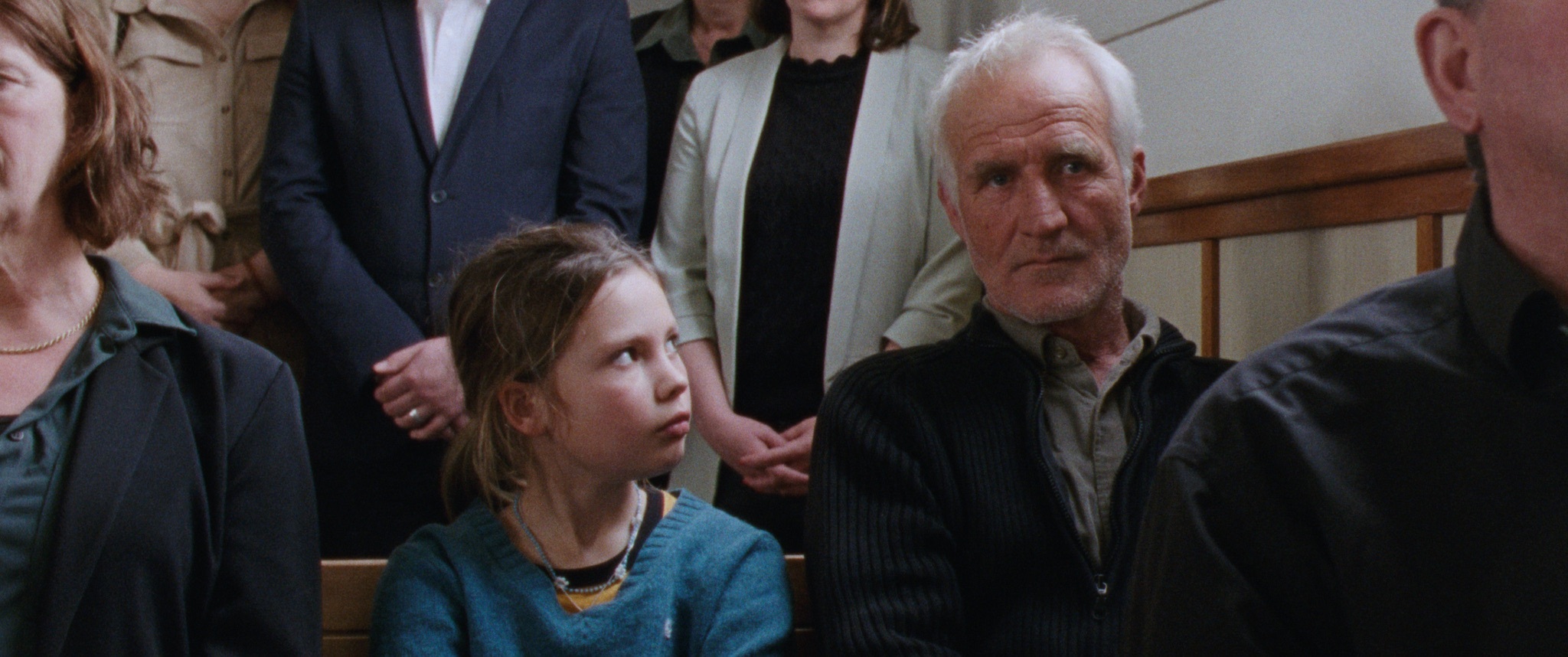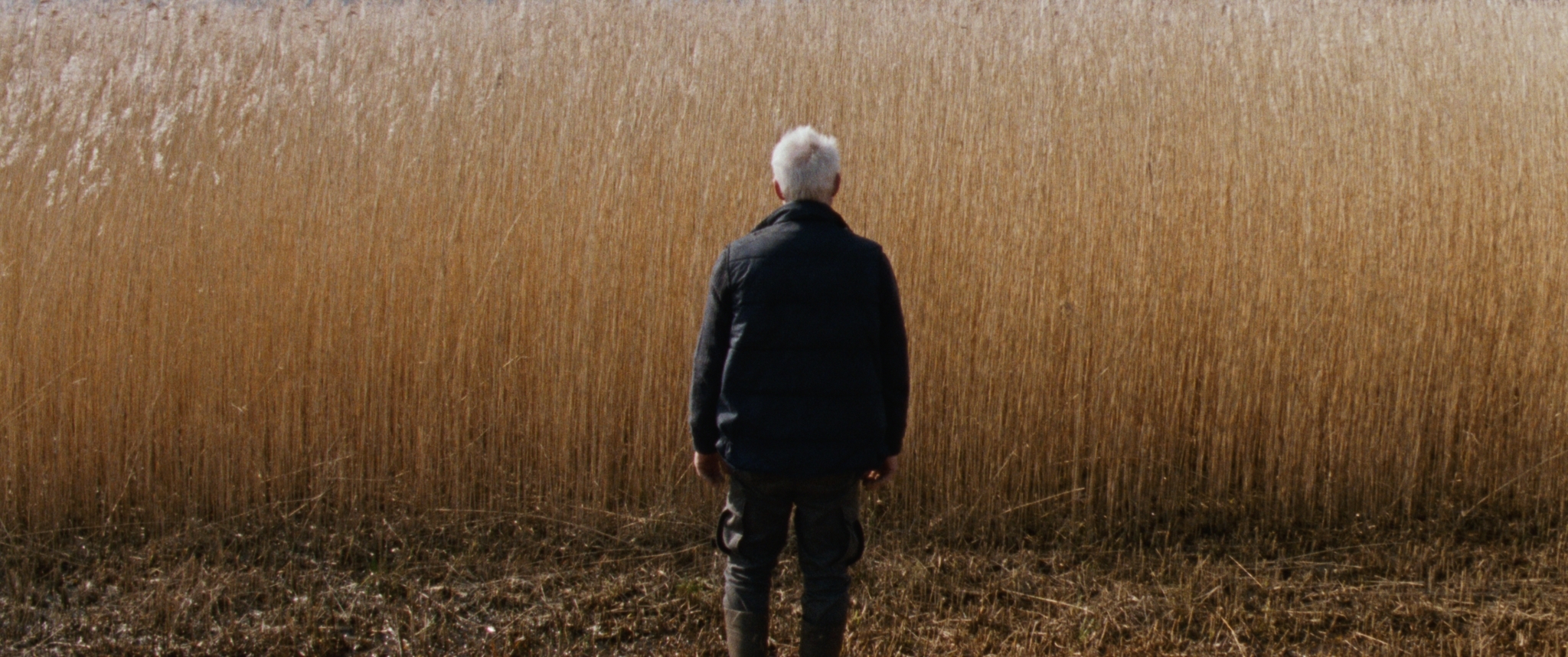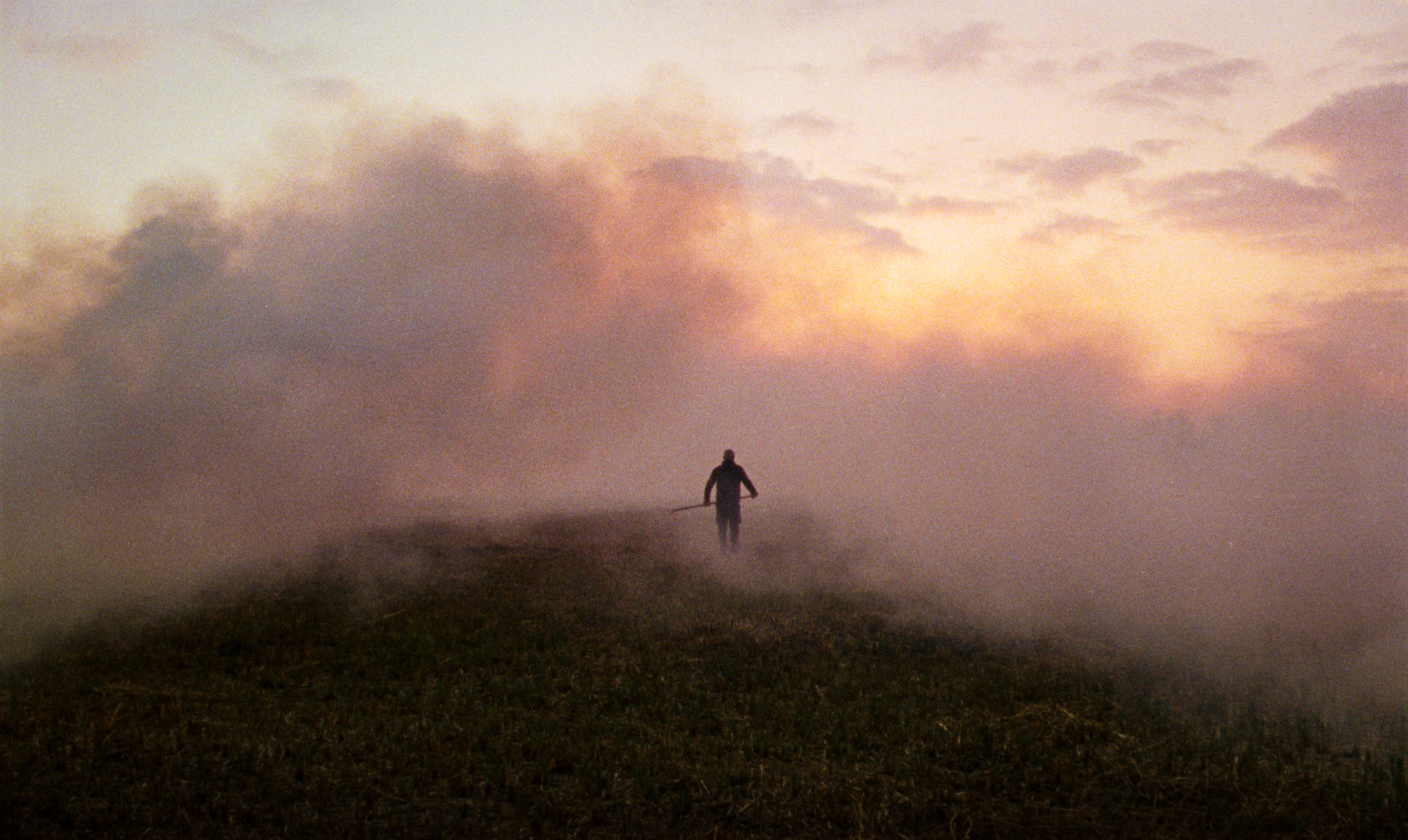Director: Sven Bresser
Writer: Sven Bresser
Stars: Gerrit Knobbe, Anna Loeffen, Loïs Reinders
Synopsis: When reed cutter Johan discovers the lifeless body of a girl on his land, he is overcome by an ambiguous sense of guilt. While taking care of his granddaughter, he sets out on a quest to track down evil.
Something gloomy occurs whenever the wind blows in director Sven Bresser’s Reedland (Rietland, screening at the 2025 Cannes Film Festival in the Semaine de la critique). An unraveling of secrets, mysteries, or dark paths happens each time the wind hits those Dutch plains and wheat fields, which are soon bathed by blood and oil. In this tonally creaky and nearly compelling Dutch drama, there are troubles all around; the poison these characters consume is rooted in such, cursing those who have done misdeeds. We see these troubles, changes, and internal fights through the eyes of Johan (Gerrit Knobbe), an elderly man who lives a calm life until he sees something unusual in his land.
Reedland begins with that same blow upon a beautiful field similar to the one seen in Terrence Malick’s Days of Heaven, without the sunlight kissing every inch of it. The wind hitting the wheat soothes the viewer’s ears, immediately calming us before Bresser switches gears later in the narrative. We see Johan tending the grain and taking his time during the process. The first ten minutes follow this man’s routine; no dialogue is spoken, just mere silence and the sounds of nature back these introductory scenes. We don’t know much about this man, but you can paint the picture through a few shots of old photographs. His partner has passed, and he misses her plenty.
Johan currently cares for his granddaughter, whom he protects more than anything. Everything he does is simply to keep her safe. But once the dead body of a young girl appears in his field, something changes in him that shakes him to the core. Even though Knobbe does not express much with his performances as Johan, this finding has profoundly affected him. It recalls something in his past, yet he is suppressing it. The police arrive and investigate the area, questioning Johan, who worked there the night before. It leads nowhere, and overcome with a strange feeling, Johan embarks on an investigation of his own, searching for the truth and justice for that poor woman. As that happens, the effects of industrialization are taking their toll.
The possibility of every farmer and agriculturist, including Johan, losing their land becomes higher than ever, with companies wanting to buy them out and machines ready to replace them. After a while, the once beautiful wheat fields coat the skies with a sinister atmosphere. Johan’s mind becomes tainted; his routine becomes a burden. The toll of it all eats up his soul inside and out. But his granddaughter keeps him alive. The film often depends more on cold, foreboding atmosphere than dialogue, shifting the focus from the actors, who still deliver engaging performances, to Sam du Pon’s striking cinematography. However, some tonal shifts during the film took me out of the film and its story, making the project inert rather than inspiring. For example, the fart scene; it does not match with the rest of the movie at all.
 These tonal shifts may be attempts to inject levity into the film’s steadily darkening narrative, but they feel unnecessary, or at least clumsily executed by Bresser. And that goes to the rest of the scenes that caused me this reaction, like the one featuring a chat room pop-up ad. Reedland benefited from basking in the darkness to tell its tale. Instead, Bresser wanted to dismantle his built atmosphere by including these scenes. It pains me to say this because the last fifteen to twenty minutes of Reedland are excellent. It concludes with a fantastic sequence of a children’s play version of ‘The Flooded Village,’ where we see the director as playful and adventurous. The tension and atmosphere carefully built during the first act are thrown away. These incomprehensible changes in tone taint the film’s most effective element. Some noteworthy aspects in Reedland work very well, but the lasting impression is disappointment from its lack of commitment.
These tonal shifts may be attempts to inject levity into the film’s steadily darkening narrative, but they feel unnecessary, or at least clumsily executed by Bresser. And that goes to the rest of the scenes that caused me this reaction, like the one featuring a chat room pop-up ad. Reedland benefited from basking in the darkness to tell its tale. Instead, Bresser wanted to dismantle his built atmosphere by including these scenes. It pains me to say this because the last fifteen to twenty minutes of Reedland are excellent. It concludes with a fantastic sequence of a children’s play version of ‘The Flooded Village,’ where we see the director as playful and adventurous. The tension and atmosphere carefully built during the first act are thrown away. These incomprehensible changes in tone taint the film’s most effective element. Some noteworthy aspects in Reedland work very well, but the lasting impression is disappointment from its lack of commitment.







